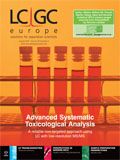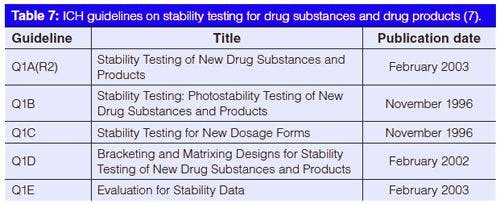Microscale Separations and Bioanalysis (MSB 2017)
The 33rd International Symposium on Microscale Separations and Bioanalysis (MSB 2017) will be held from 26–29 March 2017, at Conference Center de Leeuwenhorst, The Netherlands, in the “largest flower garden of Europe” near to Amsterdam International Airport and North Sea beaches.

The 33rd International Symposium on Microscale Separations and Bioanalysis (MSB 2017) will be held from 26–29 March 2017, at Conference Center de Leeuwenhorst, The Netherlands, in the “largest flower garden of Europe” near to Amsterdam International Airport and North Sea beaches.
MSB 2017 embodies an interactive forum for the discussion of cuttingâedge research on the frontiers of separation science, spanning fundamental developments to high-impact applications relevant to health, medicine, food, and the environment. This successful annual symposium was previously held throughout North America, Europe, and Asia.
Building on the rich history of separation science, MSB 2017 aims to create an ambience that ensures vigorous exchange of high-quality research between delegates. For that purpose, the MSB programme format incorporates several unique features. Over 70% of the oral presentations will be selected from submitted abstracts by a double-blind peer review process. Topic sessions will be introduced and actively chaired by leading researchers, and one third of the time for oral presentations will be reserved for discussion. Participation of young investigators is further stimulated by a session devoted to future stars in microseparations and by a number of travel grants for students and post-docs presenting at the conference. Poster sessions will be a substantial part of the programme with selected 3-min talks and a poster award competition.
The oral programme comprises six plenary, 14 keynote, and approximately 55 oral presentations in a parallel programme of diverse topics along three main themes: Performance, Hyphenation, and Impact. Topics include microcolumn technology and separation media; electrodriven, microfluidic, and multidimensional separations; sample preparation techniques; advanced mass spectrometry and optical detection; clinical diagnostics; biopolymer analysis; glycomics and proteomics; metabolomics and biomarker discovery; foodomics and lipidomics; forensics; doping and toxicological analysis; biologics, vaccine, pharmaceutical, biomedical, and bioactivity/affinity analysis. A one-day track (Bio)Pharma-meets-Microscale-Separation-Science will focus on separation analytics in (bio)pharmaceutical research and development.
Opening lectures will be presented by Jerome Custers of Janssen Vaccines and Prevention (Vaccine Development and Bioanalysis: an industry perspective) and by Peter Schoenmakers of the University of Amsterdam (Developing Microscale Separation Technology for a Million Peaks). One plenary lecture will be provided by the winner of the Arnold O. Beckman Medal and Award for outstanding achievements in the field of electrodriven separation.
An important part of the MSB 2017 programme are the complimentary Science Café lunch seminars scheduled daily. These will provide refreshment during discussions of advances in commercial separation technology, alongside presentations by sponsors presenting new methods and instrumentation.
MSB 2017 will feature four stimulating pre-conference short courses on Ion Mobility Mass Spectrometry, Two-Dimensional Liquid Chromatography, Bioactivity Screening Strategies, and Robust Capillary Electrophoresis.
The conference co-chair Govert Somsen, professor at VU University Amsterdam looks forward to an engaging “microscale” meeting: “The Netherlands is a country well known for its efficiency, small distances, and compactness. Our conference venue is located only 25 km from Amsterdam International Airport which offers frequent, and often direct, connections to all main destinations in Europe, America, and Asia. Registration will include lunches, dinners, receptions, and an all-delegate excursion, creating an intimate atmosphere for optimum interaction.”
Key dates include: 10 December 2016 (deadline abstract submission oral presentations) and 17 February 2017 (deadline early bird registration).
For more information visit: www.msb2017.org or e-mail: info@msb2017.org

Polysorbate Quantification and Degradation Analysis via LC and Charged Aerosol Detection
April 9th 2025Scientists from ThermoFisher Scientific published a review article in the Journal of Chromatography A that provided an overview of HPLC analysis using charged aerosol detection can help with polysorbate quantification.
Analyzing Vitamin K1 Levels in Vegetables Eaten by Warfarin Patients Using HPLC UV–vis
April 9th 2025Research conducted by the Universitas Padjadjaran (Sumedang, Indonesia) focused on the measurement of vitamin K1 in various vegetables (specifically lettuce, cabbage, napa cabbage, and spinach) that were ingested by patients using warfarin. High performance liquid chromatography (HPLC) equipped with an ultraviolet detector set at 245 nm was used as the analytical technique.
Removing Double-Stranded RNA Impurities Using Chromatography
April 8th 2025Researchers from Agency for Science, Technology and Research in Singapore recently published a review article exploring how chromatography can be used to remove double-stranded RNA impurities during mRNA therapeutics production.












